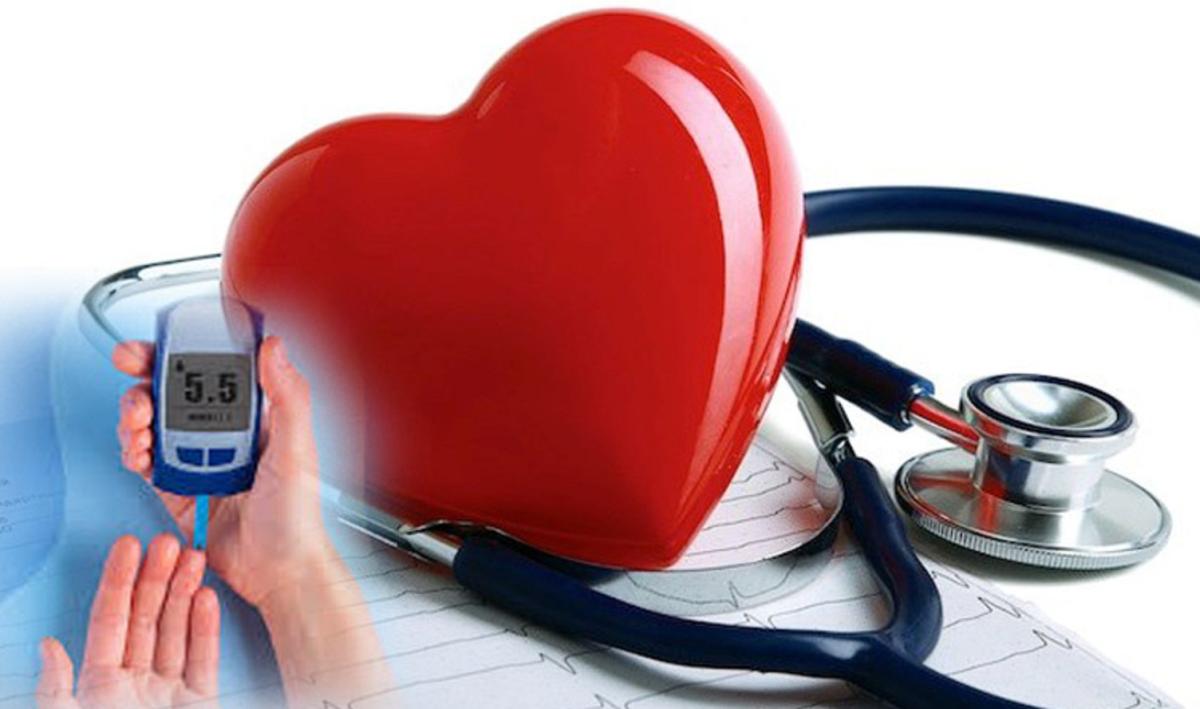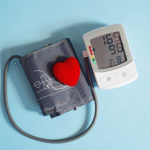Diabetes is a chronic condition known primarily for its impact on blood sugar regulation. However, one of the most significant—and often underestimated—consequences of diabetes is its effect on heart health. The connection between diabetes and cardiovascular disease is so strong that adults with diabetes are two to four times more likely to die from heart-related issues than those without the condition. This relationship is referred to as the cardiometabolic connection.
Understanding how diabetes affects the heart is essential for prevention, early intervention, and management strategies aimed at improving long-term health outcomes.
Understanding the Cardiometabolic Connection
What Is Cardiometabolic Risk?
Cardiometabolic risk refers to a group of factors that increase the chances of cardiovascular diseases, such as heart attack or stroke, in individuals with metabolic disorders like type 2 diabetes, obesity, and insulin resistance.
These risk factors often cluster together and include:
- High blood sugar (hyperglycemia)
- Abnormal cholesterol levels (dyslipidemia)
- High blood pressure (hypertension)
- Excess body fat, especially around the waist
- Inflammatory markers in the blood
When these conditions coexist, the heart and blood vessels are under continuous stress, increasing the likelihood of cardiovascular complications.
How Diabetes Damages the Cardiovascular System
1. Damage to Blood Vessels
Persistently high blood sugar levels damage the lining of blood vessels, making them more prone to atherosclerosis—a condition where arteries become narrowed and hardened due to plaque buildup. This impedes blood flow and increases the risk of heart attack, stroke, and peripheral artery disease (PAD).
2. Increased Risk of Hypertension
Diabetes and high blood pressure often go hand-in-hand. High glucose levels cause the kidneys to retain more sodium, which raises blood pressure. Over time, hypertension puts additional stress on the heart and accelerates cardiovascular damage.
3. Abnormal Cholesterol Levels
Many people with type 2 diabetes also have low levels of HDL (good cholesterol) and high levels of LDL (bad cholesterol) and triglycerides. This lipid imbalance contributes to plaque formation in the arteries.
4. Diabetic Cardiomyopathy
Independent of other conditions like high blood pressure, diabetes can cause diabetic cardiomyopathy—a disorder where the heart muscle becomes inflamed, stiff, or enlarged. This impairs the heart’s ability to pump blood effectively and can lead to heart failure.
5. Autonomic Neuropathy
Long-term diabetes can damage the autonomic nervous system, which controls heart rate and blood pressure. This condition, known as autonomic neuropathy, can lead to resting tachycardia, orthostatic hypotension, and silent heart attacks—heart attacks with no obvious symptoms.
Major Cardiovascular Conditions Linked to Diabetes
Coronary Artery Disease (CAD)
CAD is the most common type of heart disease among people with diabetes. It occurs when plaque builds up in the arteries supplying blood to the heart. Symptoms include chest pain (angina), shortness of breath, or fatigue.
Heart Failure
The risk of heart failure is significantly higher in diabetics. Elevated glucose levels can lead to structural changes in the heart muscle, reduced pumping efficiency, and fluid accumulation in the lungs and extremities.
Stroke
Diabetes doubles the risk of stroke. Damaged blood vessels in the brain and high blood pressure contribute to this increased risk, often leading to long-term disability or death.
Peripheral Artery Disease (PAD)
Diabetes increases the risk of PAD, which reduces blood flow to the limbs. PAD can lead to pain, infections, and in severe cases, amputation.
Risk Factors That Worsen the Heart-Diabetes Link
Poor Blood Sugar Control
Consistently high A1C levels (a measure of blood sugar over time) are directly associated with higher risks of cardiovascular complications.
Obesity and Sedentary Lifestyle
Being overweight, especially with excess fat around the abdomen, increases insulin resistance and blood pressure—both of which are harmful to the heart.
Smoking
Smoking further damages blood vessels and increases clot formation, worsening the cardiovascular effects of diabetes.
High Stress Levels
Chronic stress can lead to unhealthy behaviors like poor eating, lack of exercise, and smoking—all of which worsen heart and metabolic health.
Preventing Heart Disease in People with Diabetes
Blood Sugar Management
Tightly managing blood glucose levels helps reduce the risk of complications. This can be achieved through:
- Regular monitoring
- Insulin therapy or oral medications
- Low-glycemic, high-fiber diets
- Limiting refined sugars and carbs
Healthy Diet
A heart-healthy diet includes:
- Whole grains
- Leafy greens and colorful vegetables
- Lean proteins
- Healthy fats (nuts, seeds, olive oil)
- Low sodium and low saturated fat intake
Regular Exercise
Physical activity improves insulin sensitivity, helps maintain healthy body weight, and lowers blood pressure and cholesterol. Aim for at least 150 minutes of moderate exercise per week.
Medication Management
Some medications for diabetes also have cardiovascular benefits. For example:
- SGLT2 inhibitors and GLP-1 receptor agonists have shown to reduce heart disease risk.
- Statins help control cholesterol.
- ACE inhibitors or ARBs can manage blood pressure and protect kidney function.
Always consult a doctor for personalized treatment.
Smoking Cessation and Alcohol Moderation
Quitting smoking and limiting alcohol intake significantly reduce cardiovascular and metabolic risks.
Importance of Regular Screenings
Early detection of cardiovascular disease in people with diabetes is crucial. Screenings should include:
- Blood pressure checks
- Lipid profiles (cholesterol and triglycerides)
- A1C levels
- Kidney function tests
- Electrocardiograms (ECG) if symptoms or risk factors are present
Conclusion
The relationship between diabetes and heart health is intricate but undeniable. High blood sugar, combined with other metabolic imbalances, leads to widespread cardiovascular damage.
However, this doesn’t mean that a person with diabetes is doomed to experience heart disease. By adopting a proactive approach—managing blood sugar, eating well, staying active, and working closely with healthcare providers—it is entirely possible to protect the heart and live a long, healthy life.
Frequently Asked Questions (FAQs)
1. Can diabetes directly cause a heart attack?
Yes. Diabetes accelerates atherosclerosis, which narrows arteries and can lead to heart attacks due to reduced blood flow or clot formation.
2. What are the early signs of heart problems in diabetics?
Early signs include shortness of breath, fatigue, chest discomfort, swelling in legs, or irregular heartbeat. However, some diabetics may experience silent symptoms, especially due to neuropathy.
3. Can heart disease be prevented if I have diabetes?
Absolutely. With proper management of blood sugar, lifestyle, and regular check-ups, you can significantly reduce your risk of heart disease.
4. Is type 1 or type 2 diabetes more dangerous for the heart?
Both can impact heart health, but type 2 diabetes is more commonly associated with cardiovascular risk due to its relation with obesity, cholesterol, and hypertension.
5. Do diabetes medications affect the heart?
Some medications not only manage blood sugar but also protect the heart. Your doctor can recommend drugs like SGLT2 inhibitors or GLP-1 receptor agonists for dual benefits.





